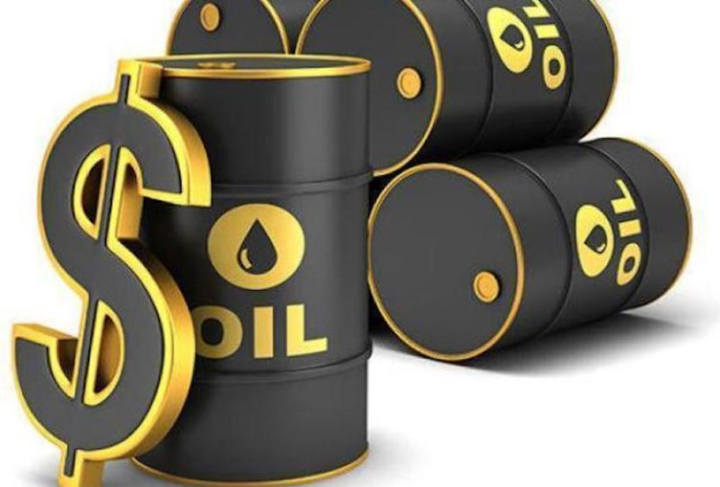Nigeria’s earnings from crude oil and gas sales have declined sharply by about 43.3 per cent, even as the country recorded an increase in oil production, according to recent figures from the Budget Office of the Federation. The report revealed that gross profit from the crude and gas sector fell to ₦1.08 trillion in 2024, compared to ₦1.90 trillion in 2023, representing a shortfall of about ₦824.66 billion.
Despite modest improvements in production, the decline in global oil prices, combined with structural challenges in the sector, eroded much of the potential gains. Nigeria’s total oil and gas revenue before deductions stood at ₦15.07 trillion, significantly below the ₦19.99 trillion target set in the 2024 budget.

The data showed that total crude output rose to 442.21 million barrels in 2024, up by 12.6 per cent from 392.66 million barrels in 2023. Average daily crude production also improved to 1.43 million barrels per day (bpd), compared to 1.27 million bpd recorded the previous year. However, the increase in production did not translate into higher fiscal earnings due to weaker crude prices and high production costs.
The Budget Office noted that while Nigeria’s petroleum profit tax (PPT) and company income tax (CIT) from gas operations improved—amounting to about ₦6 trillion combined—these gains were largely due to enhanced compliance and exchange rate revaluation rather than an increase in oil export value. Royalties rose to nearly ₦6.99 trillion, showing some fiscal resilience, but it wasn’t enough to offset the broader revenue slump.
The federal government had projected oil production at 1.78 million bpd for the year, a target that was missed due to persistent challenges such as oil theft, vandalism, and underinvestment in marginal fields. The country’s ageing infrastructure and frequent disruptions in the Niger Delta region further dampened prospects of achieving higher yields.
Despite the fall in gross earnings, net oil revenue after statutory deductions was reported at ₦12.95 trillion, an increase from ₦4.82 trillion in 2023. However, this still fell short of the budgeted expectation of ₦16.98 trillion. The improvement in net revenue was mainly attributed to foreign exchange gains following the unification of the exchange rate and the depreciation of the naira, which boosted naira-denominated revenues from oil exports.
Experts have described the sharp drop in crude earnings as a wake-up call for Nigeria to accelerate its diversification efforts and implement deeper structural reforms in the energy sector. According to energy analysts, the country’s overdependence on oil exposes it to global price fluctuations, while inefficiencies in production and export infrastructure continue to drain potential revenue.
The development also raises fiscal concerns for the federal government, as oil and gas earnings remain the backbone of Nigeria’s budgetary framework. The drop implies reduced fiscal space for capital projects and social programmes, putting pressure on borrowing and other non-oil revenue sources to bridge the deficit.
Industry stakeholders stressed the need for the Nigerian National Petroleum Company Limited (NNPCL) to ramp up investment in exploration, refinery rehabilitation, and technology-driven monitoring of pipelines to curb losses from theft and leakages. They also called for incentives to attract new investors to marginal and deep-water fields, which have suffered under declining foreign investment in recent years.
The implementation of the Petroleum Industry Act (PIA) was expected to improve governance, transparency, and investor confidence in the oil and gas sector, but analysts argue that its impact has been slow due to inconsistent enforcement and regulatory overlaps. The federal government has been urged to ensure full compliance with PIA provisions and to create an environment conducive for private participation in the downstream and midstream sectors.
Energy economist Dr. Tunde Adeniran noted that the decline in earnings despite higher production reflects a deeper structural issue. “Nigeria’s oil sector has become more about volume than value. We are producing more but earning less because our fiscal regime and market conditions are not optimised for revenue efficiency,” he said.
Similarly, Professor Bamidele Adeoye, an oil and gas expert, observed that the current situation should prompt Nigeria to prioritise value addition through refining and petrochemical development. “Exporting raw crude is no longer sustainable. The country must adopt a model that promotes local refining and export of finished products to boost revenue and create jobs,” he added.
While the global oil market has shown signs of volatility in recent months, analysts warn that Nigeria’s limited refining capacity, rising production costs, and poor energy infrastructure could further undermine its fiscal position. They also emphasised the need to strengthen transparency in crude accounting, especially regarding joint venture and production-sharing contracts, which have historically been prone to discrepancies.
The 43 per cent plunge in crude earnings, despite marginal output growth, underlines the challenges confronting Africa’s largest oil producer. It also exposes the urgency of diversifying Nigeria’s economy, improving governance in the oil sector, and prioritising sustainable investments in renewable and non-oil industries.
As global energy markets transition toward cleaner alternatives, experts agree that Nigeria must strike a balance between maximising its current hydrocarbon resources and investing in future-ready energy solutions. Without these reforms, the country risks further revenue erosion and economic vulnerability in the years ahead.
Support InfoStride News' Credible Journalism: Only credible journalism can guarantee a fair, accountable and transparent society, including democracy and government. It involves a lot of efforts and money. We need your support. Click here to Donate
